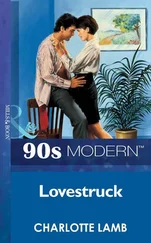Charlotte Brame - Love Works Wonders - A Novel
Здесь есть возможность читать онлайн «Charlotte Brame - Love Works Wonders - A Novel» — ознакомительный отрывок электронной книги совершенно бесплатно, а после прочтения отрывка купить полную версию. В некоторых случаях можно слушать аудио, скачать через торрент в формате fb2 и присутствует краткое содержание. ISBN: , Жанр: foreign_antique, foreign_prose, на английском языке. Описание произведения, (предисловие) а так же отзывы посетителей доступны на портале библиотеки ЛибКат.
- Название:Love Works Wonders: A Novel
- Автор:
- Жанр:
- Год:неизвестен
- ISBN:http://www.gutenberg.org/ebooks/33989
- Рейтинг книги:3 / 5. Голосов: 1
-
Избранное:Добавить в избранное
- Отзывы:
-
Ваша оценка:
- 60
- 1
- 2
- 3
- 4
- 5
Love Works Wonders: A Novel: краткое содержание, описание и аннотация
Предлагаем к чтению аннотацию, описание, краткое содержание или предисловие (зависит от того, что написал сам автор книги «Love Works Wonders: A Novel»). Если вы не нашли необходимую информацию о книге — напишите в комментариях, мы постараемся отыскать её.
Love Works Wonders: A Novel — читать онлайн ознакомительный отрывок
Ниже представлен текст книги, разбитый по страницам. Система сохранения места последней прочитанной страницы, позволяет с удобством читать онлайн бесплатно книгу «Love Works Wonders: A Novel», без необходимости каждый раз заново искать на чём Вы остановились. Поставьте закладку, и сможете в любой момент перейти на страницу, на которой закончили чтение.
Интервал:
Закладка:
"Indeed, you are not sweet," returned the governess, smiling; "but, Pauline, you are a mimic, and mimicry is a dangerous gift."
She had imitated Lady Hampton's languid tones and affected accent to perfection.
"Sir Oswald bows and smiles all the time Lady Hampton is talking to him; he stands first upon one foot, and then upon the other. You would think, to listen to him, that he was so charmed with her ladyship that he could not exist out of her presence. Yet I have seen him quite delighted at her departure, and twice I heard him say 'Thank Heaven' – it was for the relief. Your good society is all deceit, Miss Hastings."
"I will not have you say that, Pauline. Amiability, and the desire always to be kind and considerate, may carry one to extremes at times; but I am inclined to prefer the amiability that spares to the truth that wounds."
"I am not," was the blunt rejoinder. "Will you come to your rooms, Miss Hastings? Sir Oswald has ordered a suite to be prepared entirely for our use. I have three rooms, you have four; and there is a study that we can use together."
They went through the broad stately corridors, where the warm sun shone in at the windows, and the flowers breathed sweetest perfume. The rooms that had been prepared for them were bright and pleasant with a beautiful view from the windows, well furnished, and supplied with every comfort. A sigh came from Miss Hastings as she gazed – it was all so pleasant. But it seemed very doubtful to her whether she would remain or not – very doubtful whether she would be able to make what Sir Oswald desired out of that frank, free-spoken girl, who had not one conventional idea.
"Sir Oswald is very kind," she said, at length, looking around her; "these rooms are exceedingly nice."
"They are nice," said Pauline; "but I was happier with my father in the Rue d'Orme. Ah me, what liberty we had there! In this stately life I feel as though I were bound with cords, or shackled with chains – as though I longed to stretch out my arms and fly away."
Again Miss Hastings sighed, for it seemed to her that the time of her residence at Darrell Court would in all probability be very short.
CHAPTER IV.
"YOU ARE GOING TO SPOIL MY LIFE."
Two days had passed since Miss Hastings' arrival. On a beautiful morning, when the sun was shining and the birds were singing in the trees, she sat in the study, with an expression of deepest anxiety, of deepest thought on her face. Pauline, with a smile on her lips, sat opposite to her, and there was profound silence. Miss Darrell was the first to break it.
"Well," she asked, laughingly, "what is your verdict, Miss Hastings?"
The elder lady looked up with a long, deep-drawn sigh.
"I have never been so completely puzzled in all my life," she replied. "My dear Pauline, you are the strangest mixture of ignorance and knowledge that I have ever met. You know a great deal, but it is all of the wrong kind; you ought to unlearn all that you have learned."
"You admit then that I know something."
"Yes; but it would be almost better, perhaps, if you did not. I will tell you how I feel, Pauline. I know nothing of building, but I feel as though I had been placed before a heap of marble, porphyry, and granite, of wood, glass, and iron, and then told from those materials to shape a magnificent palace. I am at a loss what to do."
Miss Darrell laughed with the glee of a child. Her governess, repressing her surprise, continued:
"You know more in some respects than most educated women; in other and equally essential matters you know less than a child. You speak French fluently, perfectly; you have read a large number of books in the French language – good, bad, and indifferent, it appears to me; yet you have no more idea of French grammar or of the idiom or construction of the language than a child."
"That, indeed, I have not; I consider grammar the most stupid of all human inventions."
Miss Hastings offered no comment.
"Again," she continued, "you speak good English, but your spelling is bad, and your writing worse. You are better acquainted with English literature than I am – that is, you have read more. You have read indiscriminately; even the titles of some of the books you have read are not admissible."
The dark eyes flashed, and the pale, grand face was stirred as though by some sudden emotion.
"There was a large library in the house where we lived," she explained, hurriedly, "and I read every book in it. I read from early morning until late at night, and sometimes from night until morning; there was no one to tell me what was right and what was wrong, Miss Hastings."
"Then," continued the governess, "you have written a spirited poem on Anne Boleyn, but you know nothing of English history – neither the dates nor the incidents of a single reign. You have written the half of a story, the scene of which is laid in the tropics, yet of geography you have not the faintest notion. Of matters such as every girl has some idea of – of biography, of botany, of astronomy – you have not even a glimmer. The chances are, that if you engaged in conversation with any sensible person, you would equally astonish, first by the clever things you would utter, and then by the utter ignorance you would display."
"I cannot be flattered, Miss Hastings," Pauline put in, "because you humiliate me; nor can I be humiliated, because you flatter me."
But Miss Hastings pursued her criticisms steadily.
"You have not the slightest knowledge of arithmetic. As for knowledge of a higher class, you have none. You are dreadfully deficient. You say that you have read Auguste Comte, but you do not know the answer to the first question in your church catechism. Your education requires beginning all over again. You have never had any settled plan of study, I should imagine."
"No. I learned drawing from Jules Lacroix. Talk of talent, Miss Hastings. You should have known him – he was the handsomest artist I ever saw. There was something so picturesque about him."
"Doubtless," was the dry response; "but I think 'picturesque' is not the word to use in such a case. Music, I presume, you taught yourself?"
The girl's whole face brightened – her manner changed.
"Yes, I taught myself; poor papa could not afford to pay for my lessons. Shall I play to you, Miss Hastings?"
There was a piano in the study, a beautiful and valuable instrument, which Sir Oswald had ordered for his niece.
"I shall be much pleased to hear you," said Miss Hastings.
Pauline Darrell rose and went to the piano. Her face then was as the face of one inspired. She sat down and played a few chords, full, beautiful, and harmonious.
"I will sing to you," she said. "We often went to the opera – papa, Jules, Louis, and myself. I used to sing everything I heard. This is from 'Il Puritani.'"
And she sang one of the most beautiful solos in the opera.
Her voice was magnificent, full, ringing, vibrating with passion – a voice that, like her face, could hardly be forgotten; but she played and sang entirely after a fashion of her own.
"Now, Miss Hastings," she said, "I will imitate Adelina Patti."
Face, voice, manner, all changed; she began one of the far-famed prima-donna's most admired songs, and Miss Hastings owned to herself that if she had closed her eyes she might have believed Madame Patti present.
"This is a la Christine Nilsson," continued Pauline; and again the imitation was brilliant and perfect.
The magnificent voice did not seem to tire, though she sang song after song, and imitated in the most marvelous manner some of the grandest singers of the day. Miss Hasting left her seat and went up to her.
"You have a splendid voice, my dear, and great musical genius. Now tell me, do you know a single note of music?"
Читать дальшеИнтервал:
Закладка:
Похожие книги на «Love Works Wonders: A Novel»
Представляем Вашему вниманию похожие книги на «Love Works Wonders: A Novel» списком для выбора. Мы отобрали схожую по названию и смыслу литературу в надежде предоставить читателям больше вариантов отыскать новые, интересные, ещё непрочитанные произведения.
Обсуждение, отзывы о книге «Love Works Wonders: A Novel» и просто собственные мнения читателей. Оставьте ваши комментарии, напишите, что Вы думаете о произведении, его смысле или главных героях. Укажите что конкретно понравилось, а что нет, и почему Вы так считаете.












